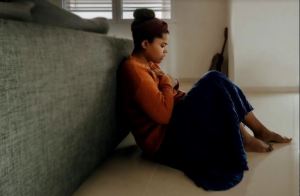During a pre-council meeting Tuesday, the Mobile City Council discussed proposed ordinances that would affect the city’s unhoused population.
The three ordinances, all proposed by Mayor Sandy Stimpson, pertain to solicitation, loitering in parks or playgrounds after dark and obstructing public sidewalks.
How the 2024 election may impact Detroit’s cultureHow the 2024 election may impact Detroit’s culture
Under the solicitation ordinance, it would be unlawful for an individual to solicit on private property or continue to do so after being asked to leave the property.
The loitering ordinance states that all city parks close at dark with certain exceptions. Staying in the park after dark or closing hours would result in violating the ordinance.
The ordinance addressing obstruction of a sidewalk provides that a person blocking a sidewalk or refusing to move after a law enforcement order would face criminal penalties.
The changes would amend and update language to existing codes.
Penalties for violating each ordinance would result in a fine up to $500, incarceration for six months and the potential for community service.
The proposed changes follow a recent U.S. Supreme Court ruling giving cities the ability to ban individuals from sleeping or camping outside in public places.
Kendell Young, Mobile‘s Homeless Outreach Coordinator, said that the ordinances were not designed to criminalize the unhoused but would help the city’s outreach team to try and “divert” people to facilities that could provide the necessary resources.
The outreach team consists of Mobile Police Department officers.
Young said the first option would be to divert unhoused people to community services, but if an individual refused assistance the decision of what to do with them would be left to the officer that detained them.
“We are not trying to criminalize the homeless,” Young said. “That is not what this is about. It creates us an opportunity to engage those individuals who are not receptive to receiving service from our outreach team.”
During the city council meeting, several individuals spoke in favor and in opposition of the proposed ordinances.
Sabrina Mass vehemently opposed the ordinances saying the city should be allocating funds to help the unhoused instead of criminalizing them.
Mass pointed to the fact that Mobile was putting over $500 million towards a civic center that could have gone into housing facilities. The actual cost for the center is $300 million however.
“You’re putting $500 million plus into a civic center for entertainment. You put entertainment before humanity,” Mass said. “This city needs to stop…put it into getting homes, properties to take the people from the street and give them somewhere to live.”
Frankie Little, a local business owner, said he hoped the ordinances would address safety concerns he had related to protecting his staff and guests.
Little mentioned a fight that occurred in July between two unhoused individuals who were both under the influence of a drug or alcohol outside of his business. Little said the incident occurred in front of staff and guests.
One of the men was taken to hospital after the altercation and the other remained on the scene as police could not arrest him since they did not see the fight.
Little said the man threatened to shoot him and his staff, prompting a 911 call. Little said he thinks the man was later arrested.
Determining how to manage homelessness has become a major issue for many cities nationwide.
An annual survey released in December 2023 revealed that homelessness reached its highest mark in the country since reporting began in 2007.











